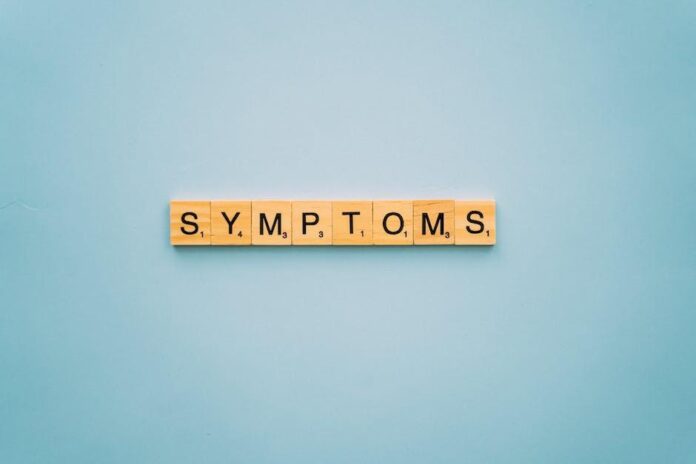
An anal fissure is a small tear in the lining of the anus, which can cause pain, bleeding, and discomfort. The symptoms of an anal fissure can be mild or severe, and can greatly impact a person’s quality of life. It’s important to be aware of the symptoms so that you can seek appropriate treatment if needed.
In this article, we will discuss the common symptoms of anal fissure, and provide some information on when to seek medical help. If you are experiencing any of these symptoms, it is important to speak with a healthcare professional to get a proper diagnosis and treatment plan.
1. Sharp Pain During Bowel Movements
One of the most common symptoms of an anal fissure is sharp pain during bowel movements. The tear in the lining of the anus can cause intense pain when passing stool, and this pain can linger for a period of time after the bowel movement has finished.
Some people describe the pain as feeling like a sharp, stabbing sensation, while others may experience a burning or itching sensation. This pain can make it difficult to pass stool, and can significantly impact a person’s ability to comfortably go to the bathroom.
2. Bright Red Blood in Stool or on Toilet Paper
Another common symptom of an anal fissure is the presence of bright red blood in the stool or on the toilet paper. This is often caused by the tear in the anal lining, which can lead to bleeding during bowel movements.
It’s important to note that while seeing blood in your stool can be alarming, it is a common symptom of anal fissure and is usually not a cause for serious concern. However, it is still important to speak with a healthcare professional to rule out any other potential causes of the bleeding.
3. Itching or Irritation Around the Anus
People with an anal fissure may also experience itching or irritation around the anus. This can be caused by the tear in the lining, as well as the presence of stool or bacteria coming into contact with the open wound.
Itching and irritation can be uncomfortable and can make it difficult to go about your daily activities. It’s important to keep the area clean and dry, and to speak with a healthcare professional if you are experiencing persistent itching or irritation.
4. Pain or Discomfort During Physical Activity
Some people with an anal fissure may experience pain or discomfort during physical activity, such as walking, running, or sitting for long periods of time. The tear in the anal lining can cause pain when pressure is placed on the area, and this can make it difficult to engage in regular activities.
If you are experiencing pain or discomfort during physical activity, it’s important to speak with a healthcare professional to get a proper diagnosis and treatment plan.
5. Muscle Spasms in the Anal Sphincter
Another symptom of anal fissure is muscle spasms in the anal sphincter. This can cause pain and discomfort, and can make it difficult to relax the muscles during bowel movements. Muscle spasms can also lead to difficulty in passing stool, and can exacerbate the symptoms of anal fissure.
It’s important to speak with a healthcare professional if you are experiencing muscle spasms in the anal sphincter, as they can greatly impact your quality of life and may require treatment to alleviate the symptoms.
6. Constipation or Difficulty Passing Stool
Many people with anal fissure experience constipation or difficulty passing stool. The pain and discomfort caused by the tear in the anal lining can make it difficult to relax the muscles and pass stool, leading to constipation and straining during bowel movements.
If you are experiencing constipation or having difficulty passing stool, it’s important to speak with a healthcare professional to get a proper diagnosis and treatment plan.
7. Pus or Discharge from the Anus
In some cases, people with anal fissure may experience pus or discharge from the anus. This can be a sign of infection, and it’s important to speak with a healthcare professional if you are experiencing pus or discharge in addition to the other symptoms of anal fissure.
In some cases, treatment for anal fissure may include antibiotics to clear up any infection, and it’s important to seek medical help to prevent the infection from worsening.
8. Gastrointestinal Symptoms
Some people with anal fissure may also experience gastrointestinal symptoms, such as bloating, gas, or abdominal discomfort. These symptoms can be caused by the pain and discomfort of the tear in the anal lining, and can greatly impact a person’s quality of life.
If you are experiencing gastrointestinal symptoms in addition to the other symptoms of anal fissure, it’s important to speak with a healthcare professional to get a proper diagnosis and treatment plan.
9. Painful Lumps or Swelling Around the Anus
In some cases, anal fissure can lead to the development of painful lumps or swelling around the anus. This can be caused by the tear in the anal lining, as well as the presence of hemorrhoids or other conditions that can develop as a result of the anal fissure.
If you are experiencing painful lumps or swelling around the anus, it’s important to speak with a healthcare professional to get a proper diagnosis and treatment plan.
10. Emotional Distress or Anxiety
Finally, people with anal fissure may also experience emotional distress or anxiety as a result of the symptoms of the condition. The pain, discomfort, and impact on quality of life can greatly impact a person’s mental health, and it’s important to seek support if you are experiencing emotional distress related to your anal fissure.
Speaking with a healthcare professional or mental health professional can help you cope with the emotional impact of anal fissure, and can provide you with tools to manage your symptoms and improve your overall well-being.

















